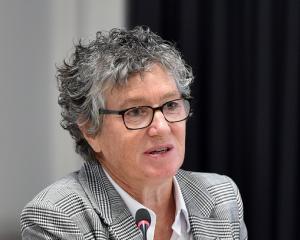
The Ice Fernz stalwart is doing as much for her team-mates off the ice as she does on it, working as a neuroscientist for the Neurological Foundation Human Brain Bank.
Murray works as a doctor leading a lab group at the University of Auckland, studying athletes’ brains to get a better understanding of the impact of different diseases, including Alzheimer’s and Parkinson’s and CTE.
The 34-year-old studied the link between head injuries and dementia/Alzheimer’s at university, and headed to the United States to complete a post-doctorate in 2018.
When she returned home in 2020, the sports human brain bank had launched, and through her experiences in her career and as an elite athlete, Murray felt the stars aligned.
Murray, who is in Dunedin this week for the division 2, group B world championships, has never taken the opportunity for granted and knows how big an impact her work could have.
‘‘It’s the most incredible organ we have, right?
‘‘The families we work with are incredible and just a lot of really amazing people who want to do the best for the next generation.’’
Her Ice Fernz team-mates served as her inspiration - ‘‘I don’t want my friends to kind of go through the same thing that I see some of these other athletes go through’’ - along with knowing the risks that came with playing a high-contact sport.
‘‘It’s about trying to figure out what can we learn from this incredible gift that a family will give to us that will make sure that we can make better decisions to ensure we’re not putting ourselves at unnecessary risk in the future.’’
Murray, who has also represented New Zealand at inline hockey, has played sport her entire life, and felt she offered a ‘‘really important perspective’’ experiencing both sides.
‘‘It’s a very polarised issue around the world because obviously people kind of sit on one side or the other, but I really sit in the middle.
‘‘I understand the benefits of sport and also that there is risk in everything that we do in life.
‘‘It’s very much about what are the most important risk factors and what can we actually do in our game to reduce that as much as possible, and then just knowing that you can always do something to look after your brain.
‘‘There’s many things other than head injuries that can influence our risk factor, so it’s just trying to limit all the other things.’’
People could always do more to look after their brains, including exercising, eating and sleeping well, and getting social interaction, and staying connected to friends and family was ‘‘hugely important’’.
Ice hockey plays a pivotal role in Murray’s sporting career. She captained the Ice Fernz from 2016 to 2020, and is competing at her 10th world tournament this week.
She was in her rookie season when New Zealand last hosted a world tournament in Auckland in 2013.
‘‘I knew it was a big deal.
‘‘It felt so important and there was just a lot of mana in the team, respect for the jersey and it’s pretty special to represent your country. That’s held through the whole time.’’
There had been plenty of changes. The women’s game had grown exponentially with a national under-18 team, more talent coming through and the Ice Fernz getting their first transtasman series last year.
Being able to pay tribute to those who had supported them through the years at home was special.
‘‘There’s all the people that have helped us do fundraisers and all that sort of thing ... to be able to actually have them here, it’s pretty cool.
‘‘We’ve always played for each other. But I think now we’re really also playing for the families in the stands, and all the kids that have come out to see us.’’
The Ice Fernz are undefeated after beating Ukraine and Belgium in their opening games, and will play Hong Kong tonight.












